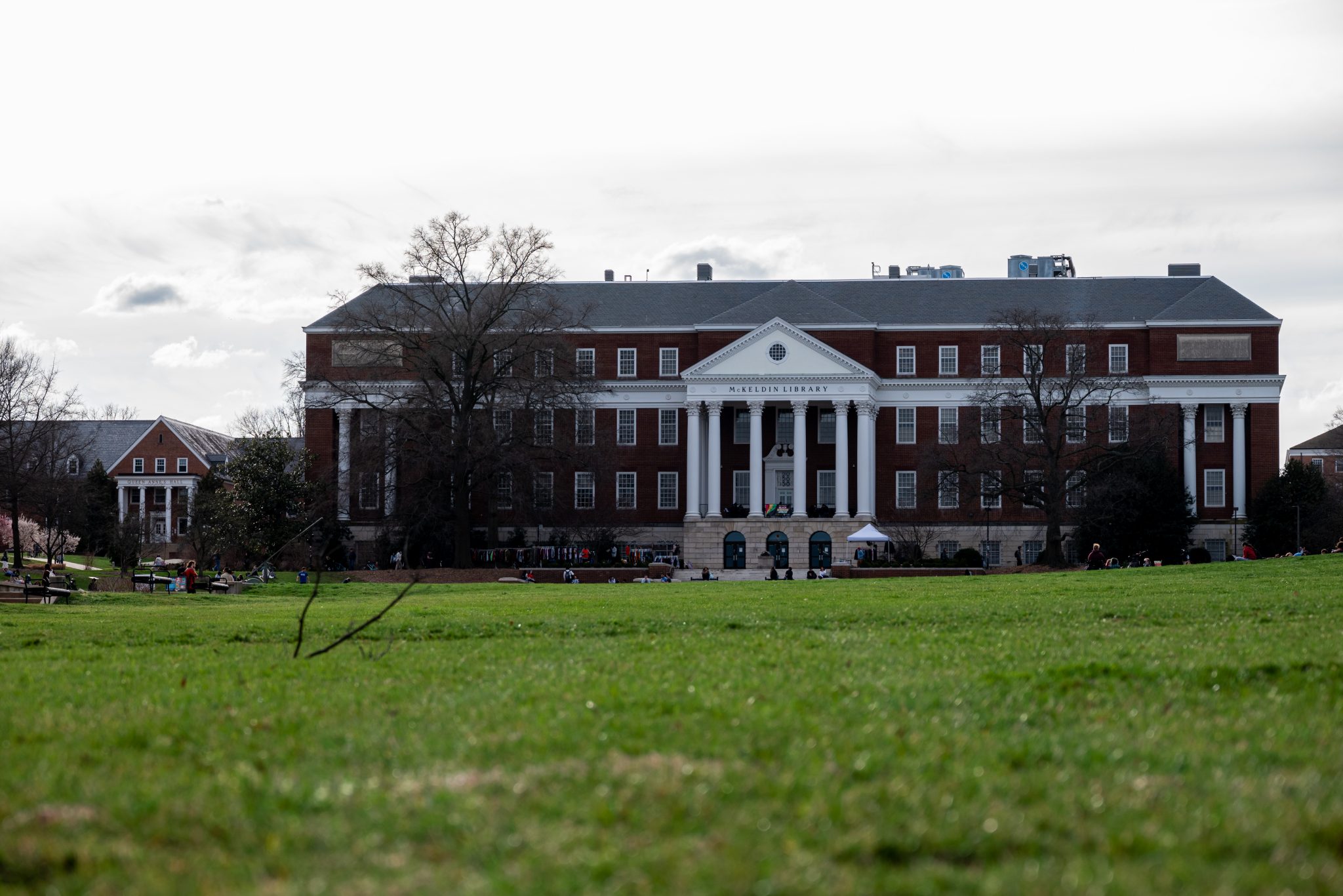University of Maryland community members are reconciling feelings of immediate relief and uncertainty about the future after Israel and Hamas reached a temporary ceasefire agreement in January.
Israel and Hamas’ ceasefire deal went into effect on Jan. 19 to pause fighting in Gaza for 42 days, free dozens of Israeli hostages and release hundreds of Palestinian prisoners, according to the Associated Press. With the deal’s first phase set to expire on Saturday, several students and faculty said they hope the peace will continue, but are afraid it won’t.
Fouad Ayoub, a senior aerospace engineering and computer science major and member of this university’s Students for Justice in Palestine chapter, said he felt excited and relieved after the deal because there would be temporary peace in Gaza after more than a year of violence.
“Activism is needed now more than ever to … make our voices heard that the ceasefire needs to continue,” Ayoub, whose family is from East Jerusalem, said.
Taylor Faust, Maryland Hillel’s former president of accuracy and education for Israel, said she was happy when she heard the hostages would be released and reunited with their families as part of the agreement.
“That’s really what we’ve wanted this whole time,” the junior criminology and criminal justice major said. “That’s what we’ve been fighting for.”
[UMD students urge business school to cancel Middle East panel over controversial speakers]
In the first phase of the ceasefire agreement, Hamas released 25 living hostages and the bodies of four hostages, including two children, the Associated Press reported Monday. Hamas is expected to return four more bodies on Thursday, and is still holding more than 60 people hostage, about half of whom are believed to be dead, according to the Associated Press.
This university’s Jewish Student Union “stands firmly in support of Israel and continues to pray for the safe return of the hostages,” the organization wrote in a statement to The Diamondback on Sunday.
“We are relieved that some hostages have been released from captivity and brought home, but we mourn the horrific loss of those who were senselessly murdered,” the statement read.
January’s deal marks the longest peace agreement in Gaza since Hamas’ Oct. 7, 2023, attack on Israel, where it killed about 1,200 people and took about 250 people hostage, according to the Associated Press.
Israel declared war on Hamas the next day and its military forces have killed more than 48,000 Palestinians since, the Associated Press reported Monday.
Nutrition and food science professor Nadine Sahyoun, who is Palestinian-American, said she was relieved when Israel and Hamas agreed to the ceasefire deal. Seeing people return to their homes and the happiness of released Palestinian prisoners’ families was moving, she said.
Sahyoun said that after more than a year of “daily bombardment,” people in Gaza have been finally able to sleep without fear.
While she hopes the peace will continue, Sahyoun said a ceasefire alone is not enough and a long-term solution is necessary.
“I am seeing things that are very disturbing that are happening,” she said. “People are going back to their homes, but going back to devastated homes.”
Nearly 70 percent of structures in Gaza, including more than 245,000 homes, have been destroyed during the war, the Associated Press reported on Feb. 5.
[Trump targets ‘Hamas sympathizers’ on college campuses in executive order]
Junior behavioral neuroscience major Uriel Appel, president of this university’s Students Supporting Israel chapter, said he was unsure how to feel about the deal when it initially went into effect last month.
Appel, who is Israeli, said there were several terms he did not want the deal to include, such as requiring the Israel Defense Forces withdraw from Gaza before “Hamas is out.”
“Over time I came to accept the ceasefire deal, but not like it,” he said. “I want an end to this war, just like everybody. But it needs to be the right end.”
The first phase of the ceasefire deal is slated to end on Saturday, according to the Associated Press. Negotiations for the second phase have not yet begun, making the deal’s future uncertain, the Associated Press reported Monday.
Over the past three weeks, United States President Donald Trump has called for the displacement of Palestinians from Gaza and for the region to be redeveloped under U.S. ownership, the Associated Press reported.
Palestinians — and multiple Arab countries, including Egypt and Jordan — have broadly rejected Trump’s plan, according to the Associated Press.
In a statement to The Diamondback on Sunday, this university’s Students for Justice in Palestine chapter said Trump’s plan is a “call for ethnic cleansing of the Gaza Strip.”
“He has no legal authority to declare ownership over the Gaza Strip,” the statement read. “Any purported empathy towards the Palestinian people is disingenuous and untrue.”
Hershel Barnstein, a board member of this university’s Jewish Voice for Peace chapter, said Trump’s remarks were “shocking.”
“Of course, Gaza needs to be rebuilt,” the senior biology major said. “But that can only be done by the Palestinians, because it is their homeland and they should not be told to leave it.”
Ayoub said he hopes the ceasefire continues, but is uncertain if it will. Trump could end up “throwing wrenches in the plans,” Ayoub said.
Israel is seeking an extension to the ceasefire’s first phase, the Associated Press reported Monday. But Hamas has declined to negotiate an extension until Israel releases about 600 additional Palestinian prisoners who were supposed to be freed last week, the outlet reported.



